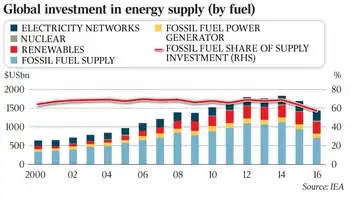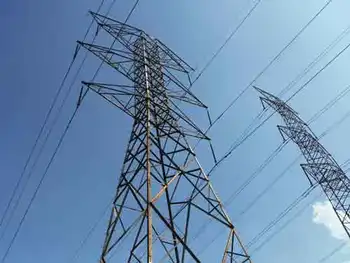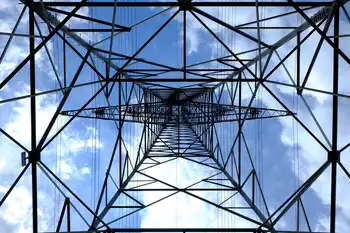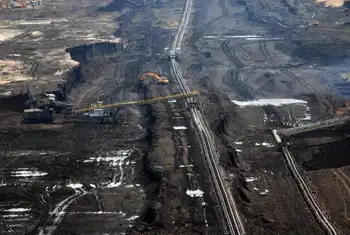Rolling blackouts could strike Las Vegas
By -- Source, The Sacramento Bee
Substation Relay Protection Training
Our customized live online or in‑person group training can be delivered to your staff at your location.

- Live Online
- 12 hours Instructor-led
- Group Training Available
Just the way California's crisis began building nearly two years ago, a cash-strapped utility is in a standoff with state regulators who won't let it charge as much as it wants.
Its credit ratings have plunged to junk.
It has just told many suppliers it will no longer pay them in full.
When the same things unfolded in California, generators balked at selling electricity or steeply raised prices and blamed it on "credit risk." The worsening spiral was part of what triggered rolling blackouts in January 2001 and forced the state to step in to buy electricity.
Whether the lights stay on in perpetually lit Las Vegas will depend on economics, the North American Electric Reliability Council indicated Wednesday in its nationwide summer forecast.
The industry group, which sets standards for running the nation's interconnected electric systems, has earmarked southern Nevada and southwestern Connecticut as two potential trouble spots this year. California should have no problems, it said.
The worry in southern Nevada, said Tim Gallagher, NERC's manager of technical services, is that it has not lined up enough power in advance to serve its customers. Nevada Power Co. is about 25 percent short, and it is unusually late for a utility to be so far shy of serving its peak summer needs.
There should be plenty of power to sell to Nevada, and lots of room on transmission lines to ship electricity there, but that might not be enough to avert blackouts, he said.
"It becomes an issue of others being willing to sell ... and southern Nevada being willing to pay the price," Gallagher said.
NERC's track record on energy forecasts is not the best -- last year it predicted California would face 15 hours of blackouts a week, all summer. There were none.
State officials, energy generators and Nevada Power all say blackouts are highly unlikely.
They believe ways can be found to keep power on -- but just in case, they have begun talking with emergency officials about how to alert the public if the casino capital is about to go dark.
Nevadans don't yet realize the potential seriousness of the problem, said Steve Boss, president of the Nevada Energy Buyers Network, a group trying to help big consumers quickly make their own power deals.
"I would hope there are no blackouts, but if things stay exactly as they are today, I would not be surprised if there are some," Boss said.
No matter what happens in Las Vegas, the crisis is unlikely to touch Reno and Lake Tahoe, which are served by Sierra Pacific Power, Nevada Power's sister company.
Even though both have the same corporate parent, their grids are not closely linked, and the north state utility has higher rates, more supplies of its own and fewer regulatory issues.
There are reasons for optimism statewide, many say.
Unlike two years ago, there is more electricity available in the West, and the Federal Energy Regulatory Commission has capped prices throughout the region.
Generators might charge Nevada Power more, but the industry as a whole won't turn its back on Las Vegas, said Gary Ackerman, head of the Western Power Trading Forum.
"It's not in anybody's stomach to do that kind of thing," he said. "There's just too much sensitivity to the headline risk."
Also, he said, "There won't be blackouts because, politically, FERC just won't let it happen."
Don Soderberg, chairman of Nevada's Public Utilities Commission, is counting on healthy supplies and FERC. He believes new leaders at the federal agency have sent a clear message to would-be market manipulators that "they will not stand for it."
It is the clash between the PUC and Nevada Power, one of the state's two big utilities, that set the stage for the blackout fears.
In late March, the PUC slapped down Nevada Power's request to pass high wholesale costs along to its customers, ruling that the utility bungled its purchases so badly that it should be repaid for about half of what it spent.
Instead of being allowed to raise rates to cover $922 million in power purchases, including costly long-term contracts, Nevada Power was allowed to collect only $485 million.
Almost immediately, financial analysts downgraded the utility.
Now, too much money is streaming out the door, said Walt Higgins, chief executive of Sierra Pacific Resources, holding company for Nevada's two utilities.
"Our rates don't cover our costs. And when your rates don't cover your costs, you run out of money," he said.
Higgins believes the PUC is second-guessing his utility, which scrambled desperately and paid high prices to keep its lights on when California went dark. Nevada Power's appeal of the March ruling is still pending.
Others, including Ackerman, say Nevada Power made monumental blunders.
Either way, it still has to buy about half the electricity it needs on the wholesale market.
It has told the companies who sold it pricey long-term contracts during the worst of the power crisis that beginning May 1, it will pay them only market prices plus a small markup for the electricity they deliver. They have not yet responded, Higgins said.
If they balk, he said, Nevada Power will try to find other generators willing to do three-month energy deals. They're out there, but many already have put credit limits on Nevada Power, and it's unclear how much they'll be willing to provide.
If all else fails, Nevada Power will turn to the spot market.
Higgins believes that will keep the juice flowing but increase Nevada Power's cash crisis. Even with federal caps, spot prices could be up to twice as much as his company can charge its customers for electricity.
"We're going to take the steps we have to take to protect the customers and the company," Higgins vowed, even if he has to consider taking Nevada Power into Chapter 11 bankruptcy.
He believes he can counter any episodes of slowly eroding cooperation from generators and predicts that Las Vegas has at least a 98 percent chance of getting through the summer unscathed.
"Blackouts almost certainly will occur only if we get some sort of panic, and overnight the suppliers stop selling to us," Higgins said.











